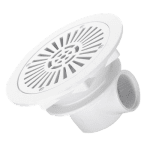Swimming pool maintenance uk
Swimming pool maintenance in the UK is essential for ensuring pools remain clean, safe, and enjoyable for users throughout the year. Whether for residential, commercial, or public pools, proper maintenance involves a combination of regular cleaning, water treatment, equipment upkeep, and adherence to health and safety regulations. Understanding the specific needs and challenges of pool maintenance in the UK ensures that pool owners and operators can effectively manage their facilities and provide a pleasant swimming experience.
1. Water Testing and Chemical Balance (Swimming pool maintenance uk)
Maintaining proper water chemistry is crucial in UK swimming pool maintenance. Regular testing of pool water ensures that pH levels, chlorine or other sanitizers, alkalinity, and calcium hardness are within recommended ranges. Water testing kits, readily available from pool supply stores or online retailers, are used to monitor these parameters. Adjustments are made as necessary to achieve optimal water balance, which not only ensures swimmer comfort but also prevents the growth of algae and bacteria that can compromise water quality.
2. Cleaning and Skimming (Swimming pool maintenance uk)
Regular cleaning routines are essential to keep UK swimming pools free of debris and contaminants. Skimming the water’s surface daily with a skimmer net helps remove leaves, insects, and other floating debris. This prevents such debris from sinking to the bottom of the pool, where it can be more difficult to remove and can contribute to water discoloration and reduced circulation. Weekly brushing of pool walls and tiles helps prevent algae buildup and ensures effective filtration.
3. Vacuuming and Filtration (Swimming pool maintenance uk)
Vacuuming the pool floor and walls on a weekly basis is necessary to remove dirt and debris that have settled. Manual or automatic pool vacuums are used depending on the size and design of the pool. The pool’s filtration system plays a critical role in removing fine particles and maintaining water clarity. Filters should be cleaned or backwashed regularly to ensure optimal performance. Common filter types in the UK include sand filters, cartridge filters, and diatomaceous earth (DE) filters, each requiring specific maintenance procedures.
4. Equipment Maintenance (Swimming pool maintenance uk)
Regular inspection and maintenance of pool equipment are essential to prevent costly repairs and downtime. This includes checking and lubricating pump seals and gaskets, inspecting hoses and fittings for leaks, and ensuring proper operation of heaters and automated chemical feeders. In the UK, where weather conditions can vary, protecting equipment from frost damage during colder months is particularly important. Properly winterizing pool equipment helps extend its lifespan and ensures it functions efficiently when the pool is reopened in spring.
5. Chemical Safety and Handling (Swimming pool maintenance uk)
Handling pool chemicals safely is paramount to prevent accidents and ensure compliance with health and safety regulations in the UK. Pool maintenance personnel should wear appropriate personal protective equipment (PPE), such as gloves and goggles, when handling chemicals. Chemicals should be stored in a secure, well-ventilated area away from heat and moisture. Proper dosing and application of chemicals are critical to maintaining water balance and preventing overdosing or underdosing, which can lead to water quality issues or equipment damage.
6. Compliance with Regulations (Swimming pool maintenance uk)
UK swimming pools must comply with regulations set forth by local authorities and health agencies. These regulations cover aspects such as water quality standards, safety signage, lifeguard requirements for public pools, and accessibility for disabled individuals. Regular inspections may be conducted to ensure compliance, and pool operators are responsible for maintaining accurate records of water tests, chemical treatments, and maintenance activities.
7. Seasonal Considerations (Swimming pool maintenance uk)
Seasonal changes in the UK climate impact swimming pool maintenance practices. In colder months, pools may be winterized to protect against freezing temperatures. This involves lowering the water level, draining and blowing out plumbing lines, adding winterizing chemicals, and covering the pool with a durable winter cover. Properly winterizing the pool prevents damage to equipment and surfaces, reducing maintenance and repair costs.
8. Professional Services (Swimming pool maintenance uk)
While many aspects of swimming pool maintenance can be managed by homeowners or facility staff, there are times when professional services are necessary. Professional pool technicians in the UK offer services such as:
- Routine Maintenance Visits: Regular inspections, cleaning, and maintenance of pool equipment and water chemistry.
- Repair Services: Diagnosis and repair of equipment malfunctions, leaks, or structural issues.
- Opening and Closing Services: Seasonal opening and closing of pools, including winterization and spring startup procedures.
9. Cost Considerations (Swimming pool maintenance uk)
The cost of swimming pool maintenance in the UK varies based on factors such as pool size, location, frequency of use, and specific maintenance requirements. Budgeting for regular cleaning supplies, water testing kits, chemicals, and occasional equipment repairs or replacements ensures that pool maintenance remains manageable and effective.
10. Training and Certification
Proper training and certification in swimming pool maintenance ensure that individuals responsible for pool care in the UK have the knowledge and skills to perform their duties safely and effectively. Certification programs may cover water chemistry, equipment operation, safety protocols, and regulatory compliance specific to the UK context. Ongoing training and professional development help pool operators stay informed about industry best practices and emerging technologies.
Conclusion
Effective swimming pool maintenance in the UK requires attention to detail, adherence to regulations, and proactive care of equipment and water chemistry. By implementing a structured maintenance plan that includes regular cleaning, water testing, equipment inspection, and compliance with safety standards, pool owners and operators can provide a safe and enjoyable swimming environment year-round. Investing in proper training and staying updated with industry standards ensures that UK swimming pools remain clean, inviting, and compliant with health and safety regulations for all users. Click Here

















